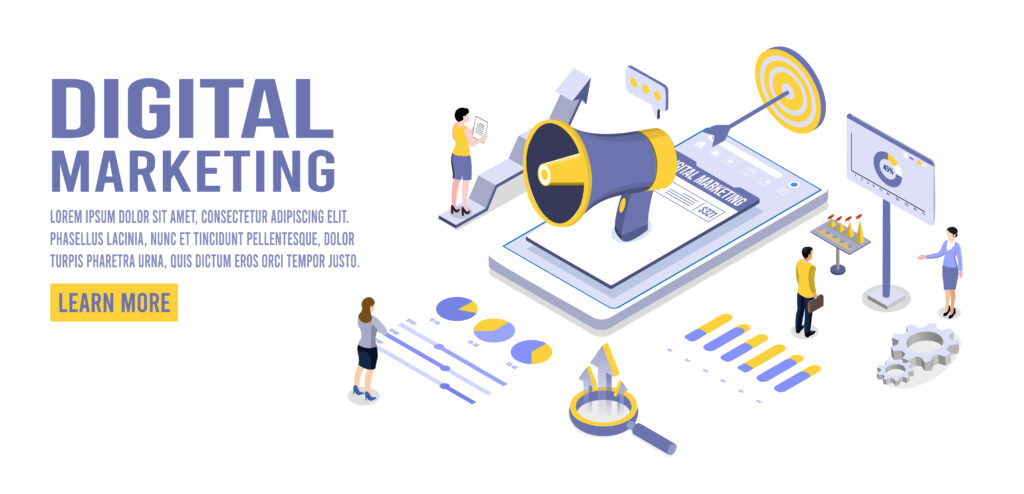Introduction
Meta Description: Craft a winning digital marketing strategy with this comprehensive guide. Learn how to understand your target audience, set measurable goals, conduct market research, and leverage various digital marketing channels. Enhance your brand identity, create engaging content, optimize for SEO, and utilize PPC, social media, email marketing, and conversion rate optimization techniques. Track performance and find answers to FAQs about digital marketing. Empower your business with effective digital marketing strategies.
In today’s digital landscape, a well-crafted digital marketing strategy is crucial for businesses to thrive and reach their target audience effectively. A successful strategy combines various online marketing channels to drive brand awareness, engagement, and conversions. In this comprehensive guide, we will delve into the essential elements of crafting a winning digital marketing strategy. From understanding your target audience to leveraging the power of different marketing channels, we will provide valuable insights and actionable tips to help you maximize your digital marketing efforts.
Understanding Your Target Audience
To craft an effective digital marketing strategy, you must have a deep understanding of your target audience. Identify their demographics, preferences, pain points, and online behavior. By gaining these insights, you can tailor your marketing efforts to resonate with your audience and drive better results.

Setting Clear and Measurable Goals
Establishing clear and measurable goals is essential for evaluating the success of your digital marketing strategy. Whether it’s increasing website traffic, generating leads, or boosting conversions, define specific goals that align with your overall business objectives
Conducting In-Depth Market Research
Thorough market research allows you to stay ahead of the competition. Analyze industry trends, competitor strategies, and customer needs to identify gaps and opportunities. This knowledge will guide your decision-making and give your strategy a competitive edge.
Developing a Strong Brand Identity
A compelling brand identity sets you apart from the competition and builds trust with your audience. Define your brand’s unique selling proposition (USP), create a consistent brand voice, and ensure brand consistency across all marketing channels.
Creating Engaging and Relevant Content
Content is the cornerstone of any digital marketing strategy. Produce high-quality, informative, and engaging content that adds value to your target audience’s lives. From blog posts and videos to infographics and podcasts, explore various content formats to cater to different preferences.
Search Engine Optimization (SEO) Strategies
Optimizing your website for search engines is vital to increase organic visibility. Conduct keyword research, optimize on-page elements, create high-quality backlinks, and provide a seamless user experience to improve your search engine rankings and drive targeted traffic.
Pay-Per-Click (PPC) Advertising
PPC advertising enables you to reach your audience quickly and effectively. Develop well-targeted campaigns, conduct keyword research, create compelling ad copy, and optimize your landing pages to maximize conversions while minimizing costs.
Social Media Marketing
Leverage the power of social media platforms to engage with your audience, build brand awareness, and foster customer loyalty. Choose the right platforms for your target audience, create a consistent posting schedule, and leverage advanced targeting options to reach the right people.
Email Marketing Campaigns
Email marketing remains a highly effective channel for nurturing leads and driving conversions. Build an email list, segment your audience, personalize your emails, and craft compelling content that prompts action.
Conversion Rate Optimization (CRO) Techniques
CRO focuses on improving your website’s performance to increase conversions. Optimize your landing pages, streamline your user journey, employ A/B testing, and leverage persuasive copy and design elements to enhance your conversion rates.
Tracking and Analyzing Performance
Regularly monitor and analyze the performance of your digital marketing campaigns. Utilize web analytics tools, track key performance indicators (KPIs), and use data-driven insights to make informed decisions and optimize your strategies.
FAQs
Q1: How long does it take to see results from a digital marketing strategy?
A: The time it takes to see results from a digital marketing strategy can vary based on several factors, including your industry, competition, and the specific tactics you employ. Generally, it takes at least a few months to start seeing noticeable results. It’s important to remember that digital marketing is a long-term game, and consistency is key. Over time, as you implement and refine your strategy, you will begin to see improvements in brand visibility, website traffic, and conversions.
Q2: How much budget should I allocate for digital marketing?
A: The budget for digital marketing varies depending on your business size, industry, and goals. It’s crucial to allocate a budget that aligns with your objectives and allows for effective execution of your strategy. Consider factors such as advertising costs, content creation, SEO efforts, social media management, and tools or software expenses. It’s advisable to start with a budget you’re comfortable with and gradually increase it as you see positive results.
Q3: What are the essential metrics to track in digital marketing?
A: The key metrics you should track in digital marketing depend on your goals and the specific channels you utilize. However, some common metrics include website traffic, conversion rate, click-through rate (CTR), cost per acquisition (CPA), return on investment (ROI), engagement rate, and customer lifetime value (CLV). Tracking these metrics will help you assess the effectiveness of your campaigns, identify areas for improvement, and make data-driven decisions.
Q4: How can I measure the ROI of my digital marketing campaigns?
A: Measuring the ROI of your digital marketing campaigns involves evaluating the monetary return generated from your marketing investments. Start by setting clear goals and establishing key performance indicators (KPIs) that align with your objectives. Use tracking tools, conversion tracking pixels, and unique URLs to measure the impact of your campaigns on lead generation, sales, or other desired actions. Analyze the cost incurred and compare it with the revenue or value generated to calculate your ROI.
Q5: What are some common digital marketing mistakes to avoid?
A: Some common digital marketing mistakes to avoid include:
- Not defining clear goals and objectives.
- Failing to understand your target audience and their needs.
- Neglecting to optimize your website for search engines.
- Inconsistent or poor-quality content creation.
- Ignoring the power of data and analytics.
- Not adapting your strategy based on market trends and changes.
- Overlooking the importance of mobile optimization.
- Relying on a single marketing channel instead of diversifying your efforts.
Q6: How can I stay updated with the latest digital marketing trends?
A: Staying updated with the latest digital marketing trends is crucial to maintain a competitive edge. Here are some ways to stay informed:
- Follow reputable digital marketing blogs and websites.
- Engage in industry-specific forums and communities.
- Attend conferences, webinars, and industry events.
- Subscribe to newsletters and podcasts by industry experts.
- Join relevant social media groups and participate in discussions.
- Network with other professionals in the field.
- Continuously invest in your professional development through online courses and certifications.
Conclusion
Crafting a winning digital marketing strategy requires careful planning, continuous optimization, and a deep understanding of your target audience. By implementing the insights and strategies discussed in this comprehensive guide, you can create a robust digital marketing plan that drives growth, enhances brand visibility, and achieves your business goals. Embrace the power of digital marketing and leverage its potential to stay ahead in today’s competitive landscape.

